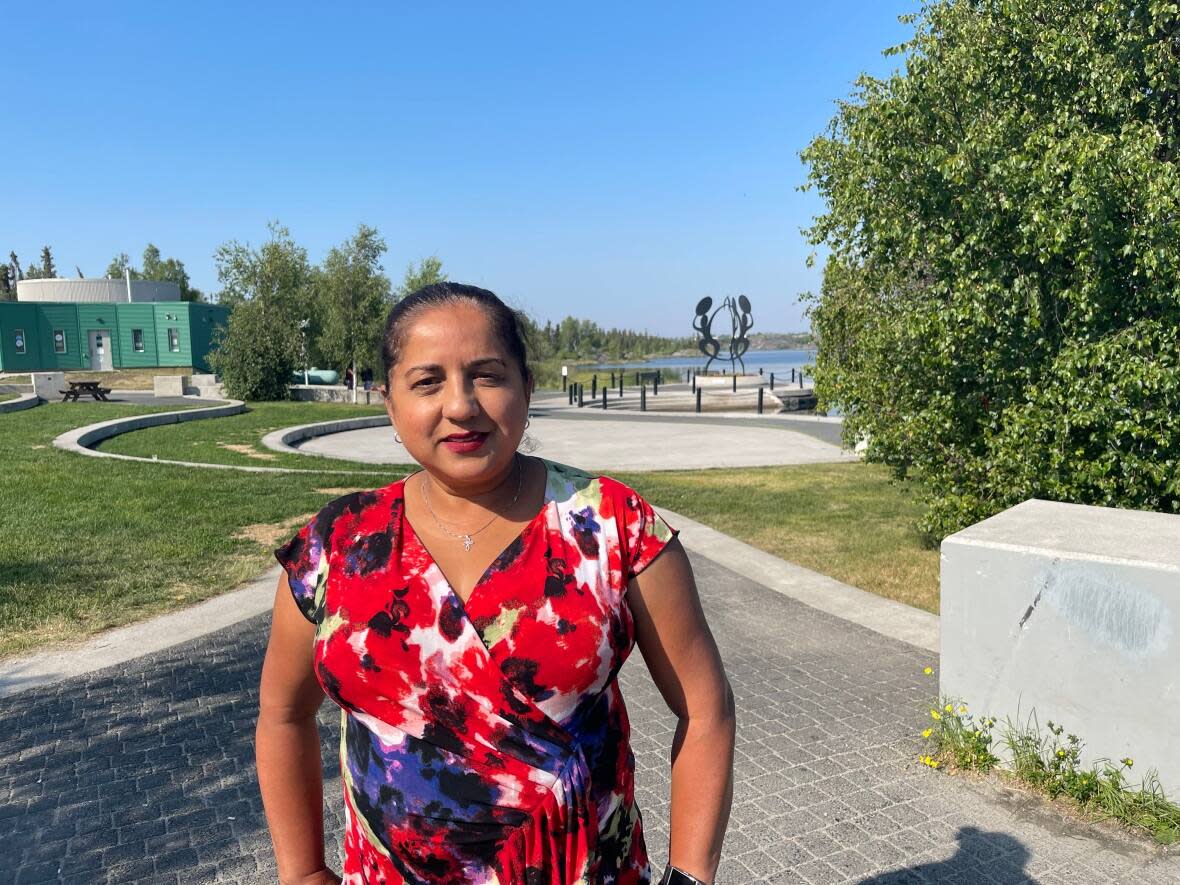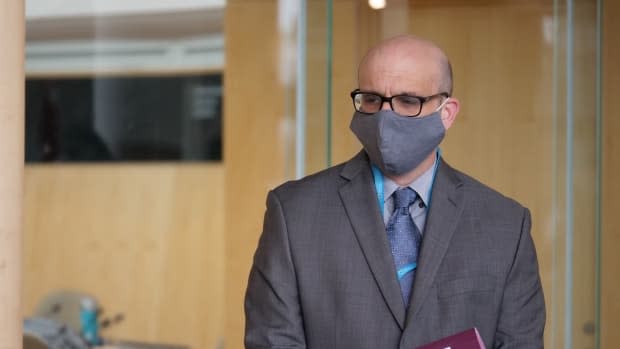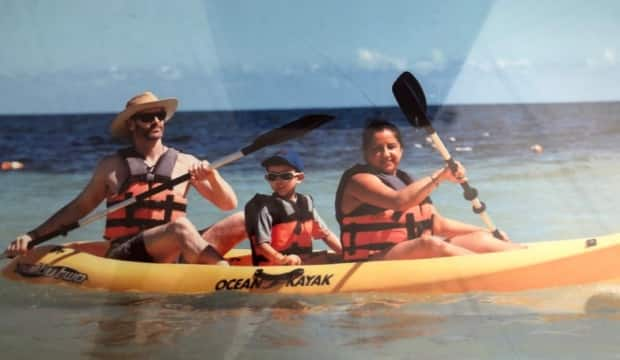N.W.T.'s Dr. Kami Kandola, Dr. Andy Delli Pizzi win award for work in 'unprecedented time'

Two top doctors for the Northwest Territories have been recognized for their work during the height of the COVID-19 pandemic.
Chief Public Health Officer Dr. Kami Kandola and her deputy, Dr. Andy Delli Pizzi, were awarded a Premier's Award for Excellence for their work "guiding the Northwest Territories through the unprecedented COVID-19 pandemic."
"It was a great honor to receive the Premier's Award … alongside my deputy chief public health officer," Kandola told CBC's Loren McGinnis, host of The Trailbreaker, during their first face-to-face conversation, without masks, since the pandemic started.
"But both of us both of us would state that a great team ... great efforts stood behind us."
Kandola said the recognition was not just important to her, but to her family, who felt her absence during long work hours over the last two years.
"It was important … that my husband and my 91 year old mother-in-law, and my son were there at the ceremony and their eyes were filled with tears when I received the award," she said.
"For over two years, they didn't have me — my son didn't have his mother at a regular time, my husband was like a single dad. And he wasn't, he didn't always know when I was going to come home."

Having lived in Yellowknife for the last about 19 years, Kandola said she's felt she's grown a deep sense of community, so when the pandemic hit, her job felt personal.
"[The] pandemic was as if my house was burning. And the people I loved were in the house and I couldn't leave — I had to go in and be there and try to mitigate as much damage as possible," she said.
"Being in the North and being connected to so many people, it carried me through. And in the end, it was never about me."
When it comes to any criticism she received from the public, Kandola said it's important to her "that people have the freedom to challenge my public health measures."
In reflection, some criticisms, like closing schools, are things Kandola said she'll contemplate in future emergencies. She said in the future, she will consider trying to keep schools open "even if we are having a surge in cases."
However, she also noted the nature of the situation — that the virus was new to the world, and resources in place now, like rapid testing and waste water testing, weren't initially available.
"As we continued to monitor the proportion of the really small proportion of cases that went on to have severe outcomes, we realized — I realized that, and I took take full responsibility for the decision — that it was time to lift the gathering orders, and on April 1, we could lift the state of public health emergency."
Kandola said she also learned about what people generally need in times of crisis.
"What I realized is that people needed a consistent, steady voice throughout all this pandemic. And we absorbed a lot of fear and anxiety," she said. That included worries around getting infected to worries over losing jobs and businesses, and missing out on events like weddings and funerals.
"I really feel a significant reduction on the fear [and] anxiety," she said.
"I do want to emphasize the main focus [for] myself as a chief public health officer is to prevent severe outcomes. It's not to prevent COVID cases, it's not to prevent COVID transmission."
And she said so far, the territory has been mostly successful.
Keeping an eye on severe cases, but first, taking time to relax
Right now, Kandola said the territory is maintaining its wastewater monitoring program, which shows that COVID is still circulating but at significantly reduced levels. The territory has also restricted the second dose booster to those 50 and older.
Going into the fall, the one indicator Kandola will be keeping an eye on is an increase in hospitalizations, and an increase in deaths.
"Thankfully over the summer, this is not what we're seeing," she said.
Kandola said the "vast majority" of people who get COVID won't likely develop severe outcomes from the disease. She said her message of caution is targeted more to people who are immunocompromised, whom she recommends take extra precautions, especially in crowded areas.
"If it's a crowded indoor gathering, you may want to keep your mask on … do a risk assessment," she said.
In the last five weeks, Kandola said there's only been two hospitalizations. Those patients recovered and there have been no ICU admissions, and no deaths related to COVID-19 since late March.

For the summer, Kandola said she's been planting her garden — "that's my therapeutic outlet" — going out to her cabin and enjoying her family.
"Trying to practice what I preach to other people is getting my immune health back to normal, getting lots of sleep, eating healthy, physical activity," she said.
"That's how I'm recuperating and so far, it's been going great."


